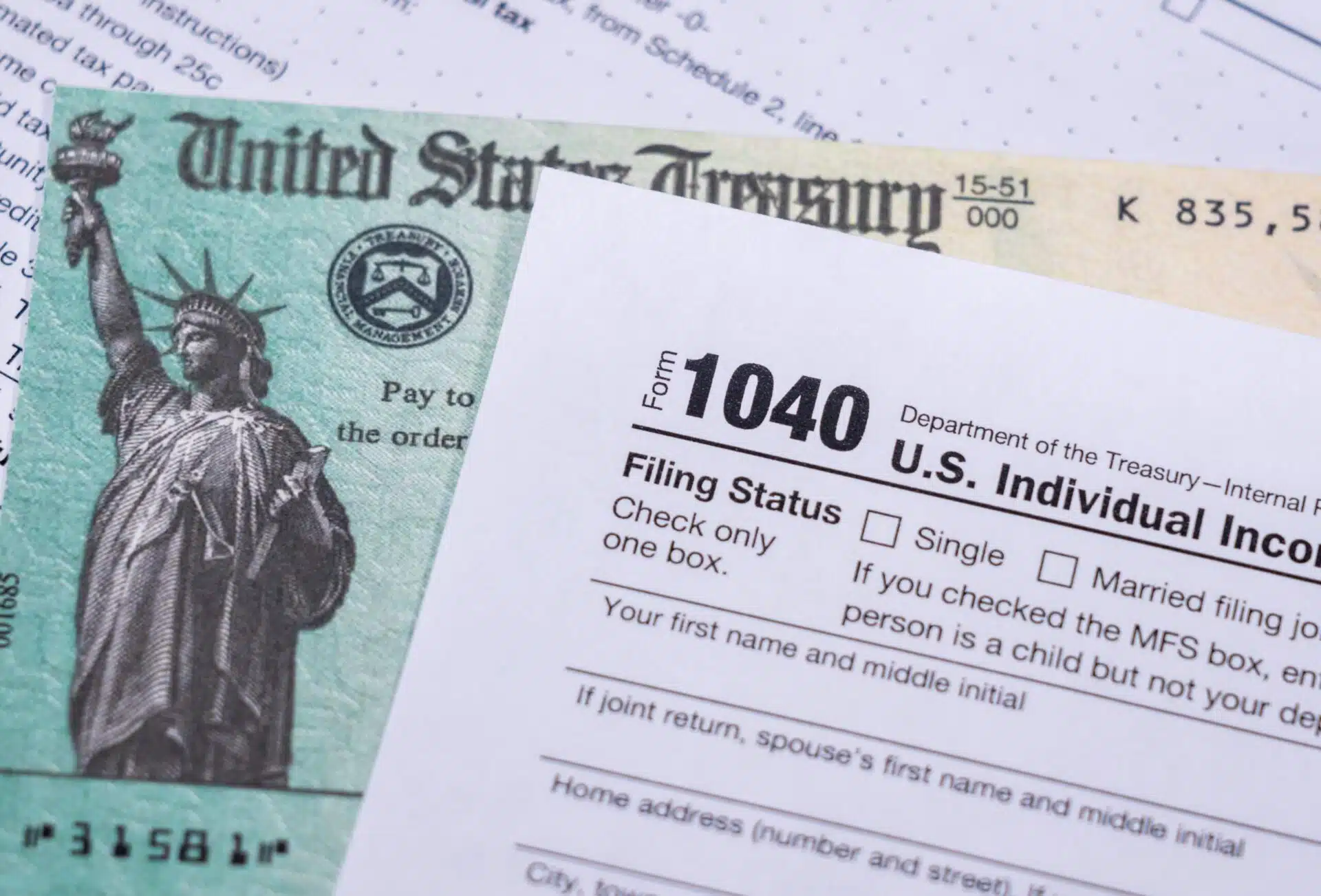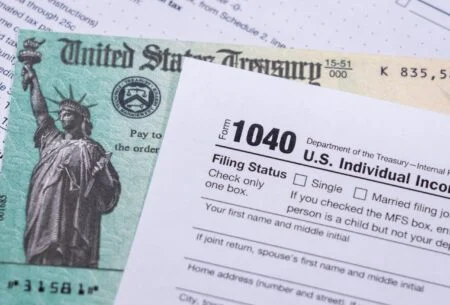Do you have to file a tax return after you retire?
Retirement Income Tax Filing is a question you may have. We have the answers for you. Retirement is a major milestone in our lives and the perfect opportunity to start fresh! However, there are still a few important financial responsibilities that come with retirement. One of the most critical financial questions for retirees is, “Do I need to file a tax return?” After all, no one wants any nasty surprises from the IRS due to misunderstandings or missed deadlines!
In this blog post, we’ll explore what taxes you may be liable for after you retire, including capital gains tax, and how and when they should be filed. We’ll also look at seven tips for avoiding surprises after you retire.
Don’t be surprised
Retirees may be surprised to learn that they still need to file a tax return even after retirement. Retirement does not automatically exempt you from filing taxes, though it can change the type of taxes you are liable for.
Generally speaking, retirees are subject to the same federal income tax filing requirements as those who are working. This means that if your total gross income exceeds certain thresholds, you will likely be required to file a federal income tax return regardless of your retirement status, including certain types of retirement income and federal taxes.
After you retire, there may still be some obligations to fulfill. You generally have to file a federal income tax return if your yearly income exceeds certain limits. For 2024, these limits are $14,600 for single filers taxpayers, $21,900 for the head of households, $29,200 for those married filing jointly, and $14,600 for married filing separately.
Those over 65 or legally blind can earn more before being required to submit a return. They get an additional buffer of up to $1,850 ($1,500 if married). Even though you’ve retired, it’s important to stay aware and comply with government regulations so you can stay on the right side of the law, including your combined income.
Furthermore, some retirees may qualify for deductions that can help reduce their tax burden. For example, if you’re 65 or older, you may be able to deduct your medical expenses, such as doctor’s visits and prescription drugs, if these expenses exceed 7.5% of your adjusted gross income (AGI).
Additionally, depending on your state of residence, such as New Hampshire, you may also be able to claim a homestead exemption, which could further reduce the amount of taxes you owe.
What Tax Forms Do I Need To File After Retirement?
After you retire, it’s important to remain aware of your tax obligations. Depending on where you reside and how much income you earned in the year prior, you may need to file a 1040 form with the IRS. This document is necessary if you are reporting income and any associated credits or deductions that are due to you.
Additionally, additional forms such as a tax calculator may require filing at the time of your taxes, depending on other factors, such as your state of residence or the type of income you made. It’s important to speak with a professional or do additional research if it is unclear which forms apply to your situation and to stay updated on any changes in tax laws.
Furthermore, if you are receiving Social Security retirement benefits, it’s important to note that these may be taxable. If the total income from all sources exceeds certain thresholds, then some or all of the Social Security retirement benefits may become taxable according to federal law. It’s important to remember this when filing your taxes so that no surprises arise from miscalculations or misunderstandings.
7 Tips for Avoiding Surprises After You Retire
Retirement is a time for relaxation and enjoyment, but surprises—especially financial or legal—can disrupt your plans. Here are seven practical tips to help you avoid unexpected challenges and ensure a smooth transition into retirement.
1) Pay Attention To Social Security Benefits:
Social Security benefits are often a critical component of retirement income. If your income consists solely of Social Security benefits, these benefits are generally not taxable, and you may not need to file a federal tax return. However, if you have other sources of income, including pensions, part-time employment, or withdrawals from retirement accounts, your Social Security benefits may become taxable.
For 2024, up to 85% of Social Security benefits may be taxable if your combined income exceeds certain thresholds:
- Single filers: Combined income over $25,000.
- Married filing jointly: Combined income over $32,000.
- Married filing separately: Combined income of $0 if you lived with your spouse at any time during the year.
Combined income is calculated as your adjusted gross income (AGI) + nontaxable interest + half of your Social Security benefits. Be aware of these thresholds to avoid unexpected tax liabilities.
For retirees aged 65 or older who file jointly, the minimum income threshold to file a federal tax return in 2024 is $30,700 (including the standard deduction and additional senior deduction). For single filers, the threshold is $14,600, and for head-of-household filers, it’s $21,900. Keep these figures in mind when determining whether you need to file.
2) Be Aware Of Your State’s Tax Requirements:
State tax rules for retirees vary significantly. While some states, such as Florida, Texas, and Nevada, do not levy income taxes, others may tax Social Security benefits, pensions, or retirement account withdrawals. For example:
- Utah and Nebraska: Tax Social Security benefits but may offer specific exemptions for retirees.
- Illinois and Mississippi: Exempt all retirement income, including pensions and withdrawals from IRAs and 401(k)s.
- California and New York: Tax certain types of retirement income but not Social Security benefits.
Additionally, property taxes, sales taxes, and local taxes can affect your financial planning. For instance, some states offer homestead exemptions or property tax relief programs for seniors. Research your state’s tax laws to take advantage of potential savings and avoid surprises.
3) Consider A Retirement Plan:
Retirement plans, such as 401(k)s and IRAs, remain vital tools for managing taxes during retirement. Here’s how they impact your tax situation:
- Traditional IRA/401(k): Contributions are tax-deductible, but withdrawals are taxed as ordinary income.
- Roth IRA: Contributions are made with after-tax dollars, but qualified withdrawals are tax-free. In 2024, the Roth IRA contribution limit is $7,000, with an additional $1,000 catch-up contribution for those aged 50 and older.
- Required Minimum Distributions (RMDs): For 2024, RMDs begin at age 73. The IRS mandates minimum withdrawals from Traditional IRAs and 401(k)s, which are subject to income tax. Failure to take RMDs can result in a steep penalty of 25% of the amount not withdrawn.
Investments within these accounts, such as index funds, ETFs, and mutual funds, grow tax-deferred, helping you maximize your savings.
4) Utilize Deductions:
Retirees may be able to use deductions to help lower their tax burden. For 2024, qualified medical expenses exceeding 7.5% of your adjusted gross income (AGI) are deductible. Other deductions include charitable contributions, student loan interest payments, and certain investment losses. Identifying and applying these deductions ahead of time can save you money when filing your taxes.
5) Make Estimated Payments:
Making estimated tax payments throughout the year instead of making one lump sum payment at the end of the year has its advantages for retirees. This is especially true if your income levels fluctuate during retirement due to Social Security benefits or stock market fluctuations. Making estimated payments helps even out the differences in income and ensures that you are paying your taxes as soon as possible, which is crucial for effective wealth management.
6) Understand Your Traditional IRA Tax Treatment:
Understanding the tax treatment of your traditional IRA, also known as individual retirement arrangements, is key to retirement planning. Depending on how you funded it and how many withdrawals you took, the distributions, also known as IRA distributions, may be fully or partially taxable or not taxable at all.
If you opted to take a tax deduction for contributions you made in prior years, any amount withdrawn prior to retirement will likely be taxed up to the previously deducted amount. Conversely, if you didn’t take a deduction for contributions made to your account – thus funded with after-tax dollars – these withdrawals are not taxable since taxes were already paid on them, and no tax benefit was given for those deposits.
This concept is often familiar to those who have 401(k) plans, where deductions taken on those accounts must still be paid back in the form of taxes on distributions. Being aware of your traditional IRA tax treatment helps ensure that there will be no unpleasant surprises when it comes time to retire.
7) Diversify Your Retirement Income:
Diversifying your income sources can help optimize your tax situation. Common income streams include:
- Social Security benefits: Taxable based on combined income thresholds.
- Pensions: Typically taxable as ordinary income.
- Investment income: Includes capital gains and dividends. Long-term capital gains are taxed at preferential rates of 0%, 15%, or 20%, depending on your taxable income.
- Annuities: Tax treatment depends on whether the annuity was purchased with pre-tax or after-tax dollars.
Balancing taxable and non-taxable income can reduce your overall tax burden and improve financial stability.
Conclusion
Retirement Income Tax Filing may not be required depending on your income, but it is still advisable to review it. This is because your taxes could be lower than you expect, and you don’t want to miss out on any potential tax refunds. If you’re unsure about whether or not you need to file an income tax return, consult a tax expert or accountant.
FAQs
How does retirement income tax work?
Retirement income tax works by taxing the income received from retirement accounts, such as pensions, 401(k)s, and IRAs. The tax rate may vary depending on factors such as the type of retirement account, the age at which withdrawals are made, and the individual’s overall income level.
What types of retirement income are taxable?
Types of retirement income that are taxable include distributions from traditional IRAs, 401(k) plans, pensions, annuities, and Social Security income. However, there may be certain exemptions and deductions available depending on the specific circumstances and tax laws in your country or state.
Are Social Security benefits subject to retirement income tax?
Yes, Social Security benefits may be subject to retirement income tax depending on your income level. If your total income including half of your Social Security benefits exceeds a certain threshold, a portion of your benefits may be subject to federal income tax.
What is the difference between federal and state retirement income tax laws?
Federal retirement income tax laws are implemented by the federal government and apply to income received from retirement sources such as pensions, 401(k) plans, and Social Security. State retirement income tax laws vary by state and may have different tax rates or exemptions for retirement income sources.
Also Read





